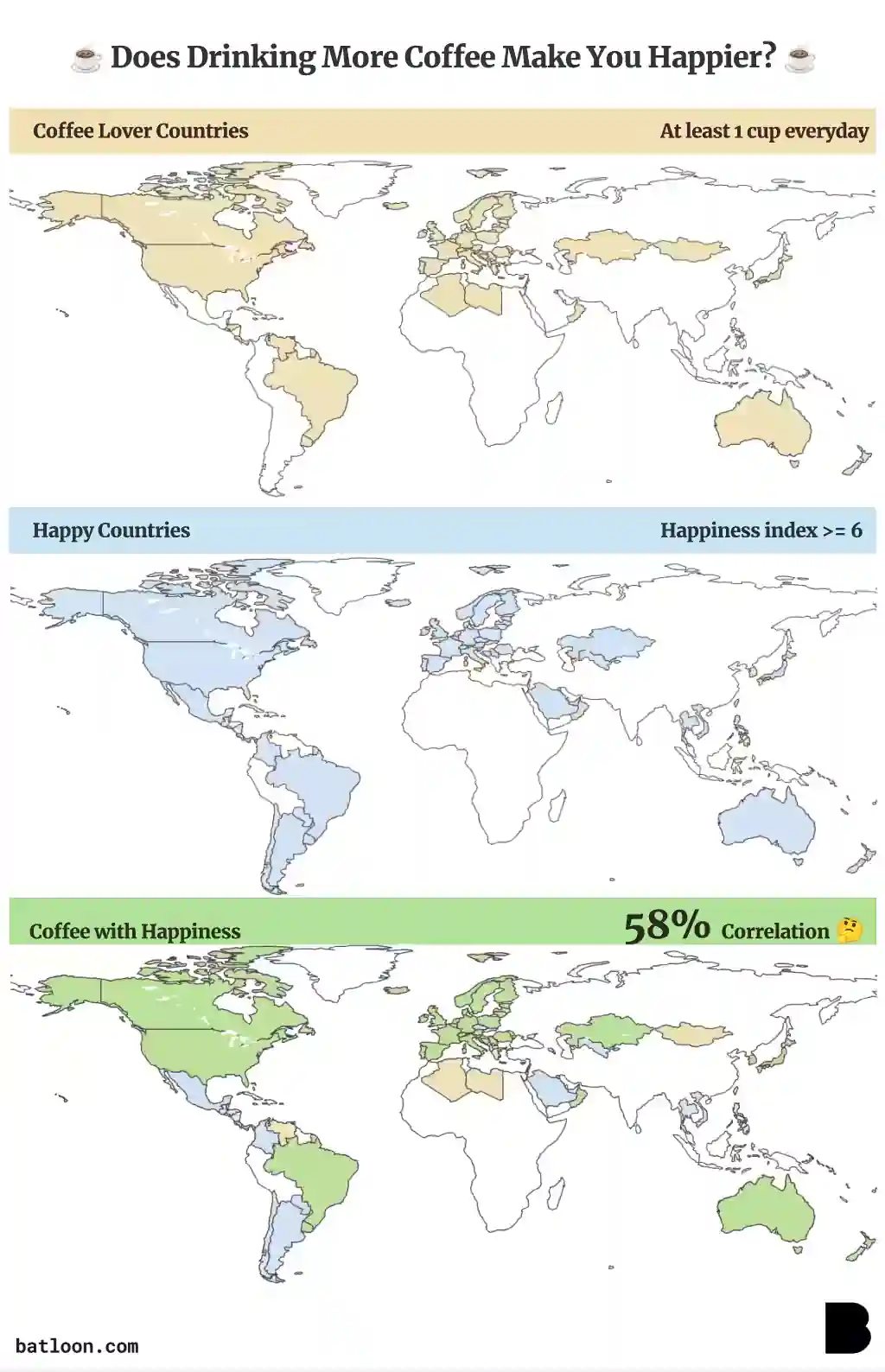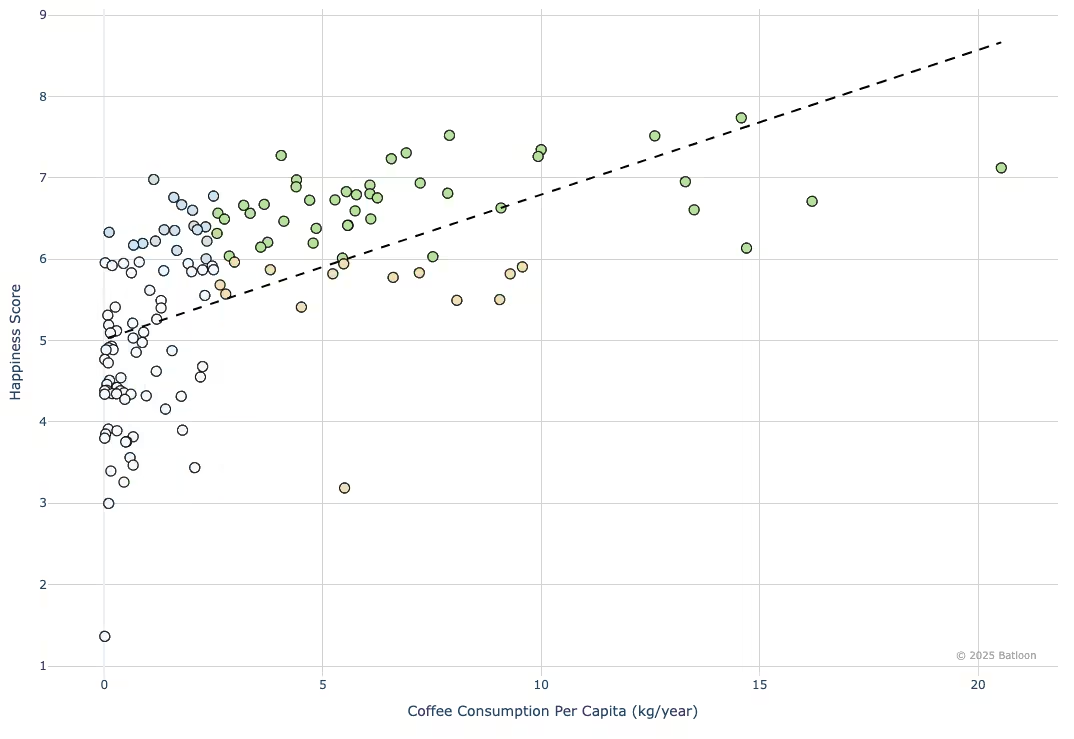The World’s Happiest Countries Also Love Their Coffee

A 58% correlation means coffee and happiness are fairly linked, strong enough that it’s more than just a coincidence.
If you've ever joked that your morning coffee is the only reason you're functional, science might finally be on your side!
A new global data analysis of 141 countries suggests there's a moderately strong connection between how much coffee people drink and how happy they are. But it's not just about caffeine buzz. Let’s break down what the data reveals, why it matters, and how it could change how we think about daily happiness rituals.
☕ The Data Brew: Coffee and Happiness
Here’s what the numbers say:
-
57 countries have high coffee consumption (defined as ≥2.56 kg per person per year).
-
60 countries score high on happiness index (≥6.0 on a 10-point scale).
-
43 countries are high on both.

The scatter graph, based on data from 141 countries, shows a positive trend: as coffee consumption increases, so does reported happiness.
That overlap is notable. The correlation coefficient, basically a statistic that measures how closely two things are related is 0.580, which experts consider a moderately strong relationship.
Translation? Countries that drink more coffee are more likely to report higher happiness levels.
Who's Sipping and Smiling?
Among the happiest coffee lovers:
-
Finland, long known as the happiest country on Earth, also drinks a ton of coffee, 14.58 kg per person annually.
-
Luxembourg tops the coffee list with a jaw-dropping 20.53 kg per person, and still clocks a high happiness score of 7.12.
-
Countries like Iceland, Sweden, Norway, and New Zealand all score high on both metrics.
On the other hand, countries like Mexico, Costa Rica, and Israel are among the happiest, but their coffee consumption is relatively modest.
Then there are countries like Trinidad and Tobago or Moldova, where people drink a lot of coffee but report lower happiness scores.
Why the Connection?
Here’s where it gets interesting. It’s tempting to say, “Drink more coffee, be happier,” but that’s not quite how it works. Here's what's actually going on:
1. Coffee Culture = Social Connection
In many high-consumption countries, coffee isn’t just fuel, it’s a social ritual. Think cafés in Stockholm or espresso bars in Vienna. That daily pause for connection might play a big role in national well-being.
2. Wealthier Countries, Better Coffee Access
Most top coffee-consuming countries are also economically advanced. With greater access to healthcare, education, and leisure, happiness tends to be higher. Coffee might just be tagging along for the ride.
3. Caffeine’s Mood Boost Is Real
Research shows caffeine can increase alertness and short-term mood. It won’t solve your problems, but it might make Monday mornings less miserable.
But Coffee ≠ Cure-All
Let’s not romanticize the latte too much. Nearly 48% of countries surveyed were neither big coffee drinkers nor particularly happy. And some, like Armenia or Greece, sip plenty of coffee but report lower happiness levels.
This reminds us: context matters. Culture, economy, stress levels, political stability: all these things affect national happiness way more than espresso.
What This Means for You
So, should you up your coffee game?
Here’s the takeaway:
-
Coffee might boost your mood, especially if it’s tied to a relaxing routine or social habit.
-
Happiness is multi-dimensional, don’t expect your morning brew to fix burnout or stress.
-
Rituals matter. Whether it's coffee, tea, a walk, or journaling intentional habits can support emotional well-being.
Bottom Line
Coffee and happiness are linked, but not in a simple cause-and-effect way. It’s not the beans, it’s the lifestyle around them that might be lifting spirits.
So, next time you're savouring that flat white or cappuccino, take a moment. Enjoy the pause. Maybe even share it with a friend. It might just be doing more for you than you think.